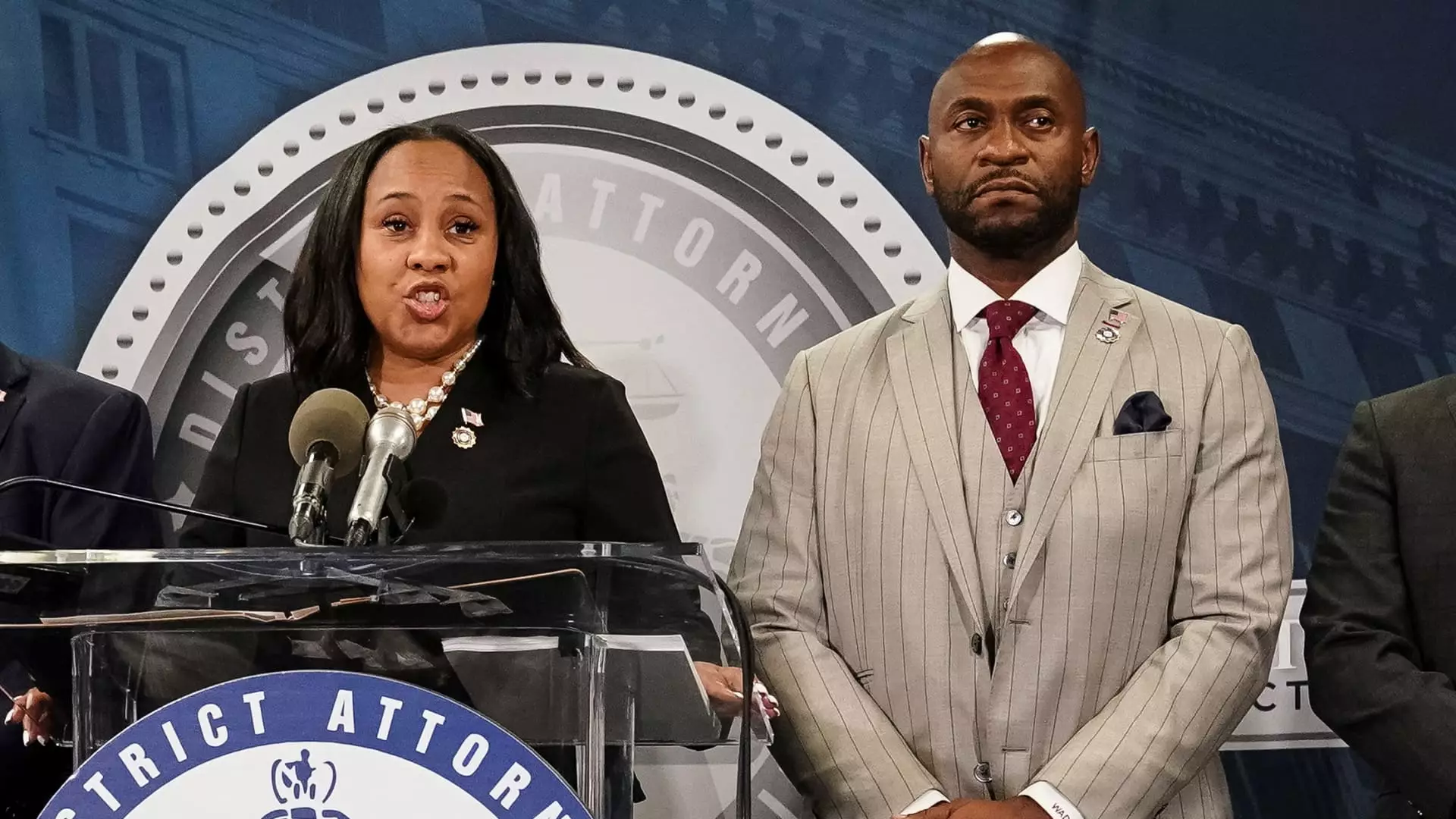As the legal battle over the criminal charges against former President Donald Trump unfolds, a new controversy has emerged surrounding the district attorney overseeing the case. In a hearing held recently, allegations of personal bias and conflicts of interest were brought against Fulton County District Attorney Fani Willis and special prosecutor Nathan Wade. The accusations stem from Trump’s co-defendants, who claim that the relationship between Willis and Wade has compromised the impartiality of the prosecution. This article delves into the details of the hearing and the implications it may have on the case.
The hearing commenced with the attorney representing the district attorney countering the allegations made by one of Trump’s defense lawyers, Ashleigh Merchant. The state’s attorney, Adam Abbate, claimed that Merchant’s accusations lacked legal merit and factual support. He further argued that Merchant’s previous statement in a different hearing warranted sanction due to her “lack of candor.” Abbate emphasized that Merchant’s misrepresentations and distortions regarding the upcoming testimony of Wade’s former divorce lawyer, Terrence Bradley, were egregious and should be taken into account.
While the hearing was underway, Donald Trump himself was absent from the proceedings, as he attended a separate hearing relating to the hush money criminal case being pursued by the Manhattan District Attorney in New York City. Despite not being physically present, the outcome of the hearing in Fulton County Superior Court could potentially impact Trump’s legal situation, making it a matter of great importance.
The central point of contention revolves around the personal relationship between the lead prosecutor, Fani Willis, and special prosecutor Nathan Wade. Both have admitted to being involved romantically but vehemently deny that this has created any conflict of interest in the case. Nonetheless, Judge Scott McAfee refrained from canceling the evidentiary hearing earlier, suggesting that the allegations could potentially lead to the disqualification of the prosecutors. This decision was made during a hearing on the district attorney’s attempt to quash motions from defendant Michael Roman, who sought to dismiss the indictment and disqualify Willis based on alleged personal and financial conflicts.
In response to Roman’s allegations, Willis dismissed them as “factually inaccurate, unsupported, and malicious.” The prosecution also pushed back against the assertions made by Roman’s attorneys in late January, with Trump’s lawyers subsequently joining these motions. While the relationship between Willis and Wade was acknowledged, the district attorney filed a court document in early February refuting various claims put forward by Roman’s legal team. She denied that their relationship had begun prior to November 2021 when Wade assumed the role of special prosecutor. Additionally, Willis stated that their personal connection had no impact on their “exercise of any prosecutorial discretion.”
To address potential concerns about financial impropriety, Nathan Wade submitted an affidavit stating that he had no financial interest in the outcome of the case. He clarified that no compensation received as a special prosecutor had been shared or provided to District Attorney Willis. Furthermore, Willis affirmed that she had not received any personal financial gain from her position as the district attorney while acting as a special prosecutor.
The ongoing hearing surrounding the alleged personal bias and conflicts of interest in the election interference case against Donald Trump has introduced a new layer of complexity to an already controversial legal battle. The accusations made by Trump’s co-defendants against Fulton County District Attorney Fani Willis and special prosecutor Nathan Wade raise important questions about the integrity of the prosecution. As the case progresses, the judge’s decision on potential disqualification and the subsequent implications for Trump’s defense will undoubtedly shape the outcome of this high-profile trial.

Leave a Reply